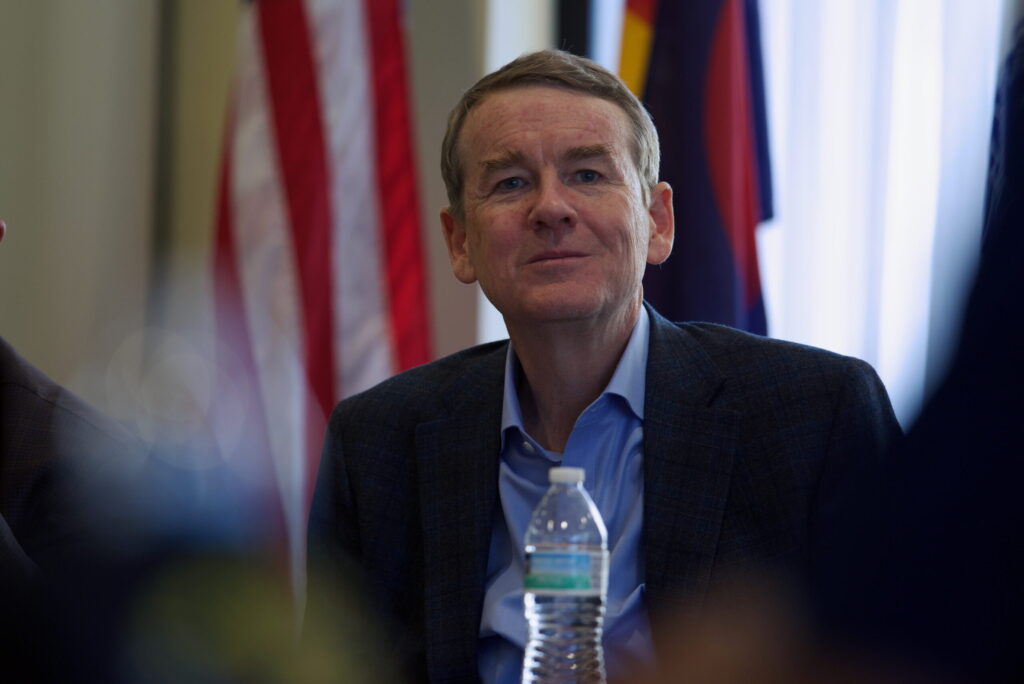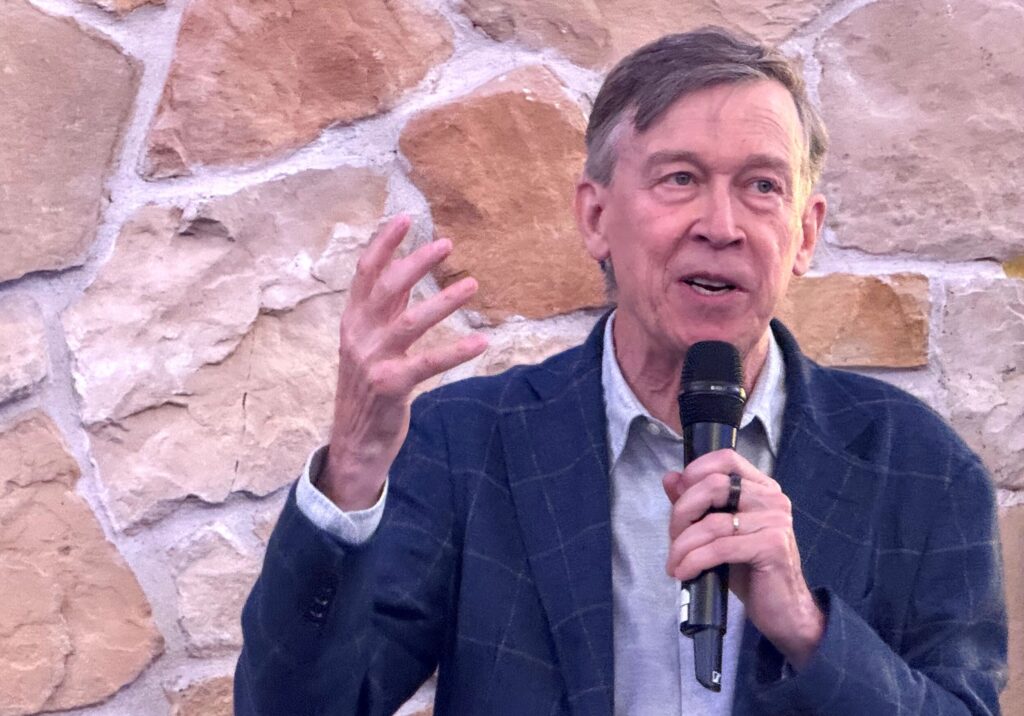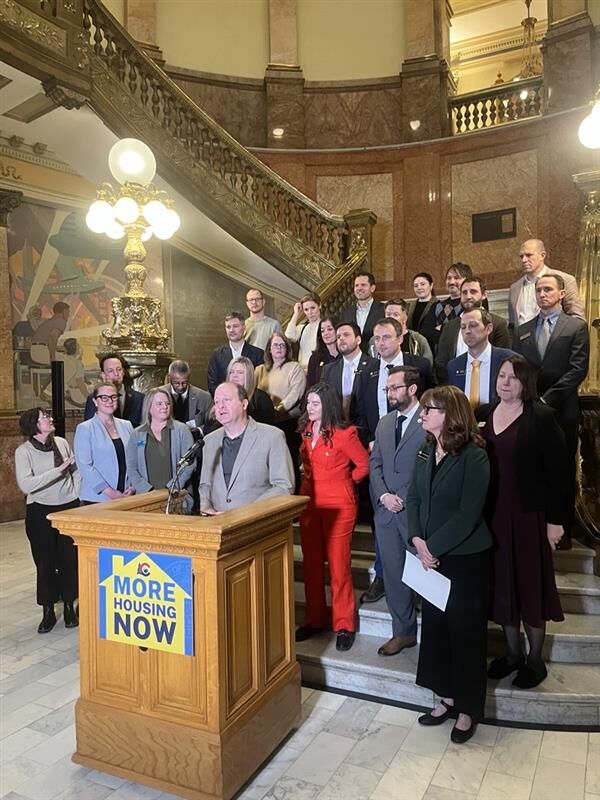CO Medical Society members vs ColoradoCare, favor other reform
By nearly five to one, physician members of the Colorado Medical Society said they would vote against Amendment 69, the ColoradoCare single payer health care program, if the Nov. 8 general election were held today.
The findings from an opinion poll of 795 interviews of member physicians, representative of a cross section of specialties and geography across Colorado and conducted Aug. 6 through Sept. 2, were used by the society board of directors to vote to oppose the amendment on Sept. 16. Survey details were discussed Monday, Sept. 26, by Benjamin Kupersmit, owner of Kupersmit Research, a pollster for the society for the past eight years.
Amendment 69 would create a statewide single payer health care program and fund it with a $25 billion tax hike on employers and employees.
ColoradoCareYES spokesman Owen Perkins said it was disappointing to see a group of physicians who the amendment would directly help oppose the amendment.
“We’ve had groups with ties to big medicine, big pharma and big money oppose us,” Perkins added. “That wasn’t surprising. So I don’t think we’re surprised at this, either.”
Perkins added a lot of the arguments made against ColoradoCare were made against the establishment of Medicare in the 1960s.
“It’s untested, untried and that risky chorus of arguments were heard some 50 years ago,” he said.
Poll results detailed, society not endorsing status quo
Kupersmit said the poll has a margin of error of 3.5 percent and members were sent emails, asking them to check the amendment, a pro and con analysis, independent analysis from the Colorado Health Institute and Ballotpedia, along with society position papers and information from ColoradoCare supporters and opponents.
In the poll, 78 percent of society members said they would vote “no” on Amendment 69 if the election were held today, believing the complexity, uncertainty and approach behind the amendment may make things worse. Sixteen percent would vote “yes” and 6 percent were unsure. Kupersmit noted the survey revealed satisfaction is very low with many aspects of the current health care system and, if Amendment 69 fails at the ballot box, 62 percent of those surveyed want the society to aggressively pursue incremental reforms to the current system, while 27 percent want to pursue sweeping health system reform.
“Our opposition to the amendment is not an endorsement of business as usual,” said society President Katie Lozano, M.D., in a statement. “That is why (the organization) will continue our years-long fight to create a health care system that works for patients and the physicians who care for them.”
Among the 16 percent who said they favored the amendment, Kupersmit noted “extensive, deep frustration with the current system and a desire for immediate fundamental change.” Members indicated health care now is too expensive, too cumbersome and unable to deliver optimal outcomes, Kupersmit said. And they strongly felt that universal health care is a fundamental right, noting that when physicians take their oaths, they promise to take care of people, regardless of their ability to pay for their care, he stated.
Among the dozen reasons Kupersmit listed from society members as reasons to oppose Amendment 69 was opposition to socialized medicine.
“They believe government involvement in health care is the root cause of the problems in the system today, and extending the decision-making and putting more authority into a governmental entity is fundamentally problematic,” Kupersmit said.
Other reasons members opposed the amendment included concern about perceived high taxes imposed by ColoradoCare, uncertainty about details, a possibility the state budget could be affected if costs exceed revenues, a preference for a national health care reform initiative instead of only Colorado and the fact Medicare patients would pay the tax but not be covered.
Perkins said the idea of universal health care started with physicians, and some members of the Colorado Medical Society are among those with a ColoradoCare endorsement group called Physicians for ColoradoCare.
“I know they’ve written letters of support to their colleagues,” Perkins added.
Among physicians supporting Amendment 69, most are general practitioners and family doctors, Perkins said.
“I think many of the doctors opposed are specialists and they may feel the money they now make could be at risk,” he added, “because they stand to be more affected.”
Current system fails at many levels
Kupersmit said society members also indicated a strong sense that the current system is failing to deliver care at the ideal level, with problems in efficiency, simplicity, affordability and unsustainable cost containment methods.
“Perhaps one of the highest levels of concern we see among our members is a sense of bureaucratic interference in the exam room,” Kupersmit noted. “One physician noted his prescription pad is now a suggestion pad, that his prescriptions were being overridden by insurers.”
Other impressions expressed in the survey are that the negative impression of the health care system is transferred to physicians, who are seen as part of the problem, Kupersmit said. That contributes to physician burnout, he added.
Three areas showed society members felt relatively satisfied: timely access to health care for all patients, ongoing improvement of quality and public safety and a deep trust between physicians and patients, Kupersmit noted.
“There are higher levels of concern among specialists, particularly in rural areas” he added.
Survey respondents were also clear on what the next step should be, Kupersmit said.
“It’s incremental reform,” he said. “For everyone involved, other stakeholders, the providers as well as our legislators and anyone else moving this system forward, and for those whose lives are at stake in Colorado, our members want to see incremental, aggressive reforms with both commercial and public payers as an effort to reform the entire system.”
Perkins said he believes opposition to Amendment 69 does mean support for the status quo when it comes to health care.
“And I think this stance is somewhat ironic when you take into account the huge increases in premiums that were just announced” by commercial health insurers, he added.











